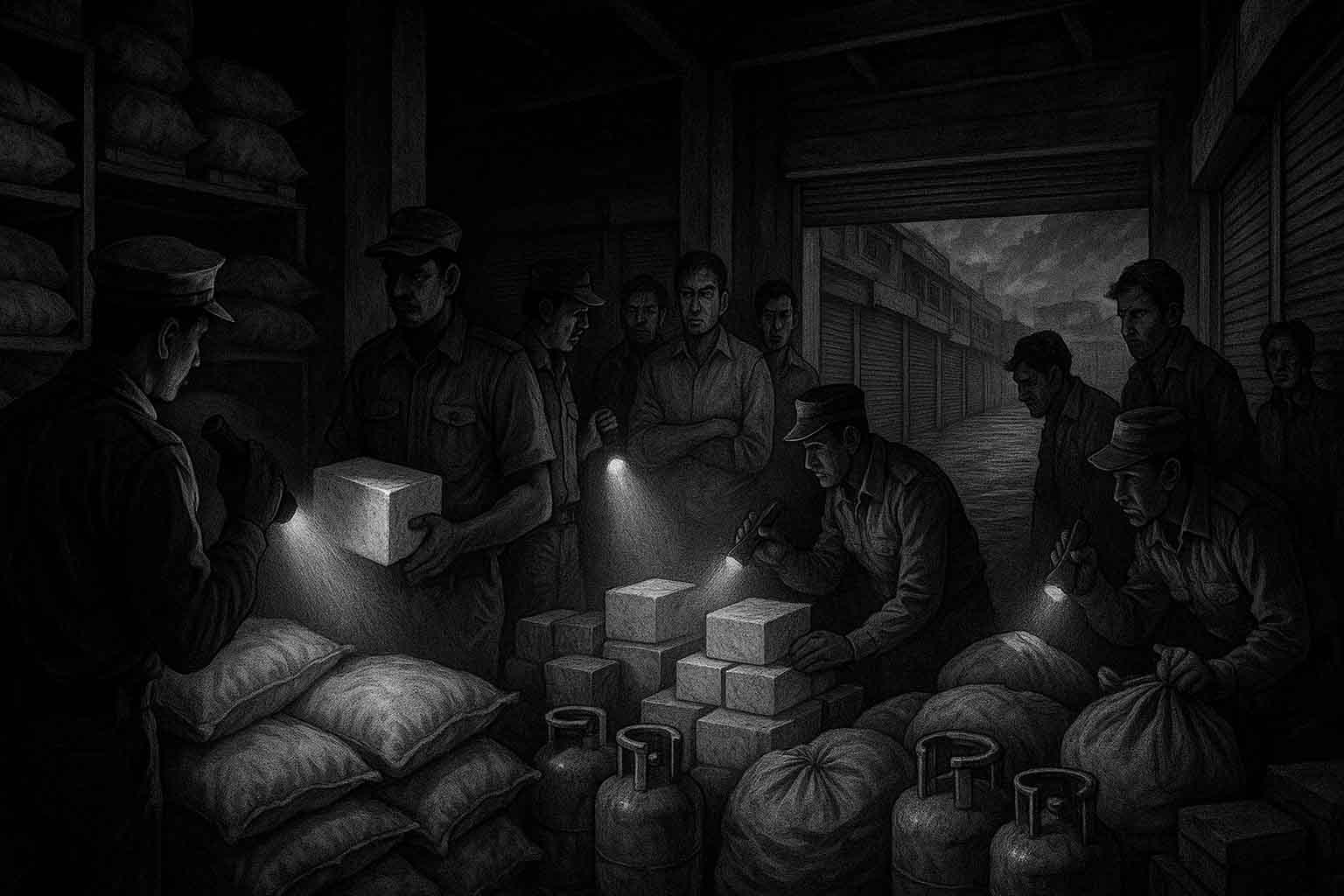Gurgaon, October 1 –
In a major pre-festive crackdown, food safety teams and the Chief Minister’s flying squad raided multiple dairies and storage units across Farrukhnagar, Palwal, and Gurgaon, seizing over 2,000 kilograms of adulterated paneer and khoya late Monday night.
The raids, conducted under the Food Safety and Standards Act, 2006, targeted supply chains feeding into Gurgaon’s bustling sweet shops and festive markets. Officials said that while the samples have been dispatched to laboratories for confirmation, initial inspections strongly suggest large-scale adulteration involving starches, synthetic oils, and harmful chemicals.
The operation has sparked alarm among residents, many of whom are preparing for Navratri, Dussehra, and Diwali celebrations, festivals during which consumption of paneer and milk-based sweets spikes dramatically.
The Crackdown in Detail
According to officials, the largest single seizure came when a pickup truck carrying 1,000 kg of paneer from Palwal was intercepted near Farrukhnagar. Additional raids at dairies and storage units in the area netted another 1,000 kg of paneer and khoya.
Several shops and warehouses downed shutters mid-operation, indicating fear and panic among traders suspected of being part of the adulteration racket. District authorities confirmed that follow-up inspections are scheduled throughout the week across cold chains, storage units, and sweet shops.
Adulteration: A Silent Threat
Adulteration in milk products is a recurring menace in India, often surfacing before festivals. Public health experts warn that starch, detergent, synthetic milk oils, and caustic agents are sometimes used to increase quantity or extend shelf life.
These adulterants may cause:
- Immediate health issues: nausea, diarrhea, food poisoning.
- Long-term risks: gastrointestinal disorders, organ damage, and even cancer with prolonged exposure.
Doctors urge consumers to remain vigilant, particularly during the festive rush when demand is high and unscrupulous suppliers exploit shortages.
Legal Action Underway
Food safety officials confirmed that prosecutions will follow if lab reports verify adulteration. Under the Food Safety and Standards Act, guilty parties face:
- Fines up to ₹10 lakh.
- Imprisonment for repeat or severe violations.
Officials also warned that licenses of offending dairies and sweet shops could be permanently revoked.
Administration’s Appeal to Public
The Gurgaon district administration has urged citizens to:
- Purchase dairy and sweets only from licensed outlets.
- Report suspicious vendors or abnormally low-priced paneer/khoya.
- Avoid bulk purchases from unverified sources.
“The safety of citizens is non-negotiable. We appeal to people to be cautious during the festive season and help us track offenders,” an official statement said.
Traders and Consumers React
The raids have sent shockwaves across Gurgaon’s wholesale dairy and sweet markets.
- Consumers: Many families expressed fear, with some vowing to avoid milk sweets altogether this season.
- Traders: Genuine dairy owners welcomed the crackdown, saying it protects honest businesses.
- Sweet shops: Some worried that panic could dent sales just as festive demand peaks.
Why Gurgaon Was Targeted
Gurgaon, with its mix of corporate residents, migrant families, and thriving retail sector, is a major market for milk products. Demand for khoya and paneer spikes before festivals as households prepare traditional sweets like barfi, gulab jamun, and rasgulla.
Officials believe Gurgaon’s proximity to Haryana’s dairy belt and Delhi’s urban markets makes it a prime hub for adulteration rackets, where unscrupulous suppliers push substandard products into high-demand areas.
Pattern Across India
This is not an isolated incident. Every year before Diwali, similar seizures are reported nationwide:
- In Uttar Pradesh, over 5,000 kg of synthetic khoya was seized in 2023.
- In Madhya Pradesh, raids uncovered milk adulterated with detergent and urea.
- In Delhi NCR, multiple cold chains were booked for mixing starch and synthetic oils in paneer.
These patterns reflect the systemic challenge of food adulteration, which peaks during festive consumption.
Expert Warnings
Nutritionists caution that consumers should:
- Check texture: Pure paneer is soft and crumbly; adulterated varieties feel rubbery.
- Smell test: Chemical adulterants often leave a faint detergent-like odor.
- Color check: Pure khoya is off-white; adulterated batches are unnaturally white or shiny.
Home tests with iodine (for starch) or boiling (for synthetic milk separation) can also help identify adulterated batches.
The Bigger Picture: Food Safety in India
The Gurgaon crackdown highlights deeper structural issues:
- Inadequate testing labs: Limited facilities delay prosecution.
- Weak enforcement: Offenders often return under new names.
- Consumer unawareness: Few know how to spot adulteration.
Experts argue that India needs stricter real-time surveillance of dairy supply chains, coupled with technology like QR-coded food traceability.
Government’s Next Steps
Officials confirmed that random inspections will continue across Haryana throughout October. The state food department is also considering setting up mobile testing vans in Gurgaon markets during Diwali week to reassure consumers.
Conclusion: A Bitter Truth Before a Sweet Season
The seizure of over 2,000 kg of adulterated paneer and khoya in Gurgaon is a stark reminder that the festive glow often hides food safety risks. While enforcement has improved, rackets continue to thrive on high demand and low consumer awareness.
For citizens, the message is clear: celebrate with caution. For authorities, the raids underline the need for systemic reforms in food monitoring, stricter penalties, and consumer education.
As Gurgaon gears up for Diwali lights and sweets, the bitter truth remains that only vigilance can keep adulteration out of the celebrations.
#Gurgaon #FoodSafety #Adulteration #Paneer #Khoya #FestiveSeason #PublicHealth #Haryana #FSSA #SafeFood




+ There are no comments
Add yours